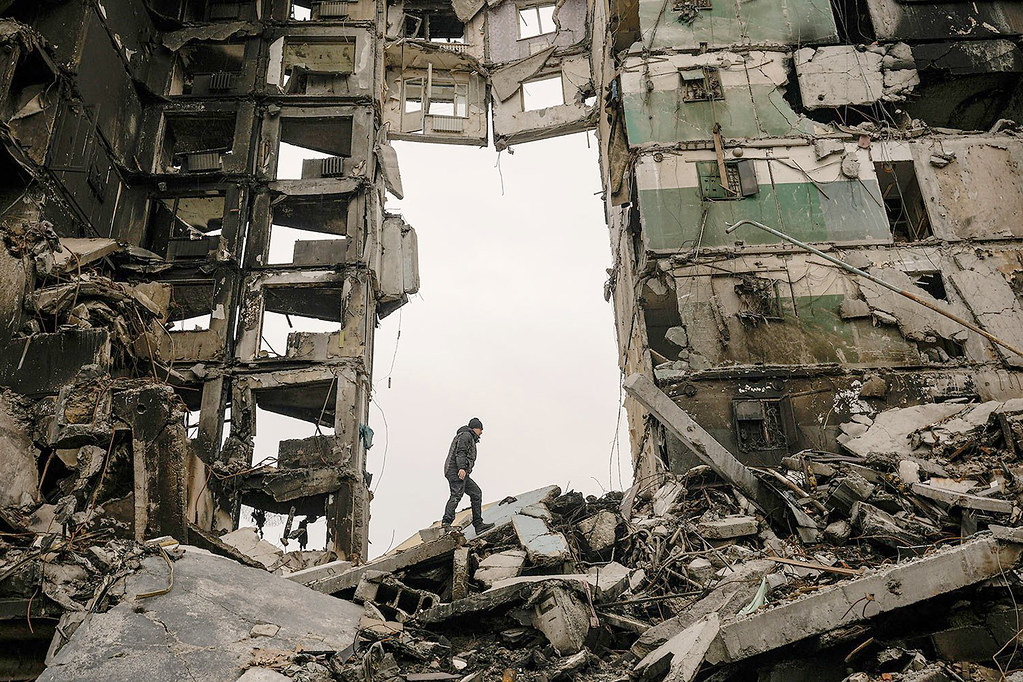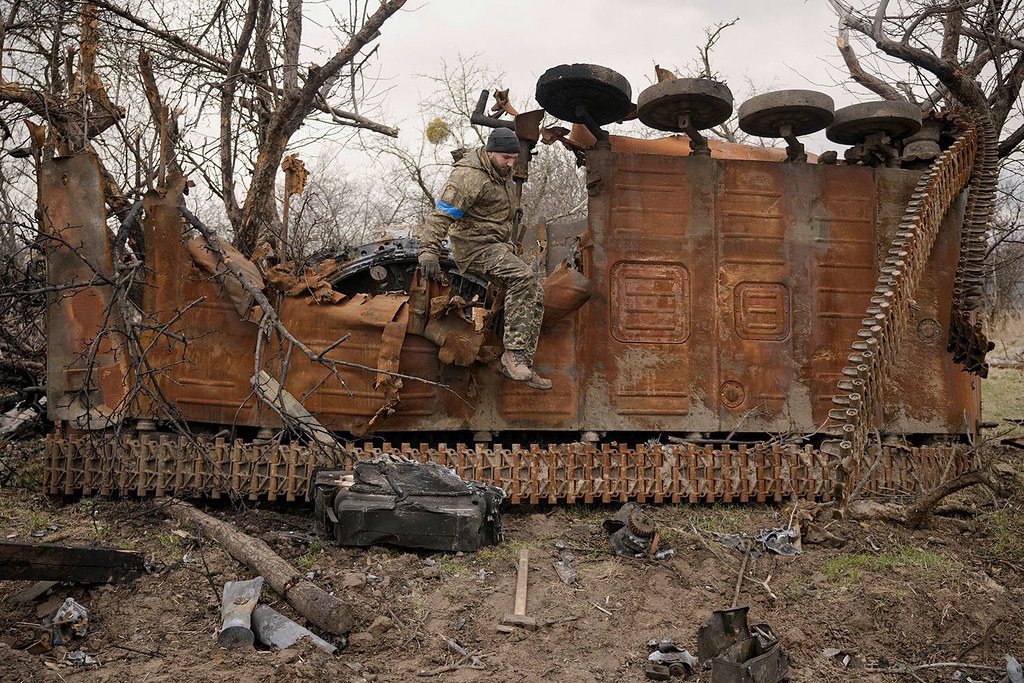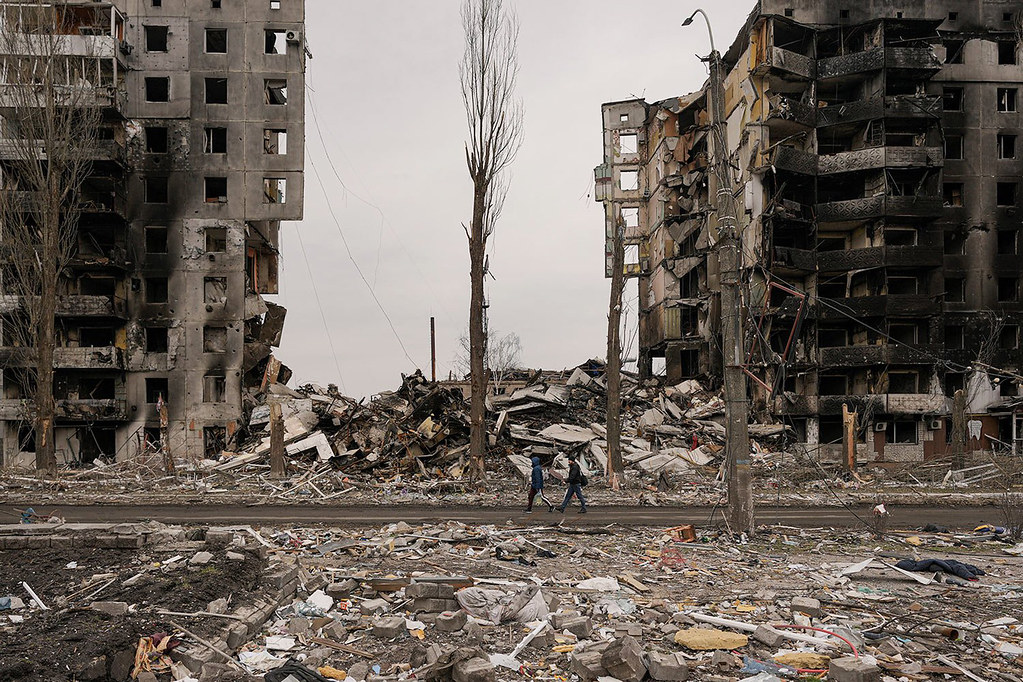War. War never changes.
And neither does humanity’s response to it: anger; disgust; a desire to help; and for some, the lust for thrills.
The idea of war tourism is not new. Historians and journalists have been described as “war tourists” as far back as the 17th century, traveling to former and even current battlegrounds so that they may document the horrors of combat [1]. But in the 20th and 21st centuries, “war tourism” has taken a different meaning.
In the last few decades there have been companies that facilitate travel to active areas of conflict, including Iraq, Somalia, and Syria [2]. These companies advertise their services for what they call “adventure tourism.” Critics, however, call it voyeurism. Today, more than ever, it is easy to access articles, videos, and pictures of conflicts happening in real time, which some say has spurred interest in the war tourism industry [3].

The relevance of this has been brought to new light as Ukraine calls for aid from military veterans and medical personnel from all over the world [4]. Over 20,000 people from 52 different countries have answered President Zelenskyy’s call, joining the International Legion of Ukraine. Some, however, have had different expectations when trying to join the legion. There have been reports of Americans heading to the Ukrainian border only to turn away after realizing that joining the war means that they will be there for the duration of the entire conflict [5]. According to a contract all volunteers of the Ukrainian Armed Forces must sign, anyone joining the fight will be expected to be there until the end. Rumors have surfaced of foreign volunteers expecting to “fight for a month” and then return to their jobs and families after doing their part. However the Ukrainains are firm in their requirements: if you fight for Ukraine, you fight until martial law is lifted across the country.
It is uncertain how many volunteers have traveled all the way to Ukraine and decided to turn away at the last minute. And these decisions make critics question their motives. Those with no connection to Ukraine, and even those without combat experience, have traveled across the world with hopes of having an AK47 put in their hands and a blue and yellow flag put on their sleeves. For example, a Texas man was on his way to the Ukrainian border posted to social media and told journalists that his videos on Ukraine had garnered tens of thousands of followers [6]. This man has no connections to Ukraine, and though he was in the military, he has no combat experience [7].
These volunteers who go running into the horrors of war with no experience, with no connections to Ukraine, and with a strange penchant for finding journalists to talk to should make us question whether they are pure in their intent to defend Ukraine from Russia’s aggressive and brutal invasion or if they are more keen on checking their TikTok views. This new age of war tourism is dangerous for those who equate entertainment sources, like war films and video games, with the reality of what war does to men, women, and children. The story of a 19 year old Englishman who made his way to Ukraine illustrates this perfectly: the man, with no military experience whatsoever, justified his travel with a simple credential — he’s really good at Call of Duty [8].

Never before has social media had the role in a conflict as it has in the Russian invasion of Ukraine. Images and videos of atrocities, reported acts of heroism, heart-wrenching stories of the collateral and intentional harm of civilians are accessible to anyone with an internet connection. This has brought Ukraine unprecedented aid from across the world, but also an apparent new take on the problem that is “war tourism.”
Those with pure intent and a commitment to what volunteering means should be aware of what they are getting into before they sign that contract. Those who make the leaderboards on first-person shooters on their Playstation should be warned: war is not a tourist destination.
References
1. Lloyd D. Battlefield Tourism. Oxford: Bloomsbury Publishing; 1998.
2. War Tourism. Outlook India. https://www.outlookindia.com/website/story/war-tourism/291827. Published 2022. Accessed April 3, 2022.
3. Kamin D. The Rise of Dark Tourism. The Atlantic. https://www.theatlantic.com/international/archive/2014/07/the-rise-of-dark-tourism/374432/. Published 2022. Accessed April 3, 2022.
4. https://fightforua.org//. Published 2022. Accessed April 3, 2022.
5. Foreign fighters joining Ukraine won’t be able to leave until war ends. Mail Online. https://www.dailymail.co.uk/news/article-10592377/Foreign-fighters-joining-Ukrainian-army-wont-able-leave-war-ends.html. Published 2022. Accessed April 3, 2022.
6. Athey P. https://www.marinecorpstimes.com/news/your-marine-corps/2022/03/31/no-war-tourism-for-marines-wanting-to-head-to-ukraine/. Published 2022. Accessed April 3, 2022.
7. Stewart A. Untrained foreign fighters urged to steer clear of Ukraine: ‘This is not Call of Duty’ – National | Globalnews.ca. Global News. https://globalnews.ca/news/8721221/foreign-fighters-ukraine-canada/. Published 2022. Accessed April 3, 2022.
8. Murray A. 19-Year-Old Brit With No Military Experience But Is Good At COD Now In Ukraine. Ladbible.com. https://www.ladbible.com/news/brit-with-no-military-experience-travelled-to-ukraine-20220309. Published 2022. Accessed April 3, 2022.
Chris Laube is a student in the class of 2023. He was an EMT prior to med school, where he met his wife, and attended most community colleges in the Phoenix area as well as ASU. When not on rotations, he enjoys spending time with his wife and kids, pretending to be an endurance athlete, and video games.


